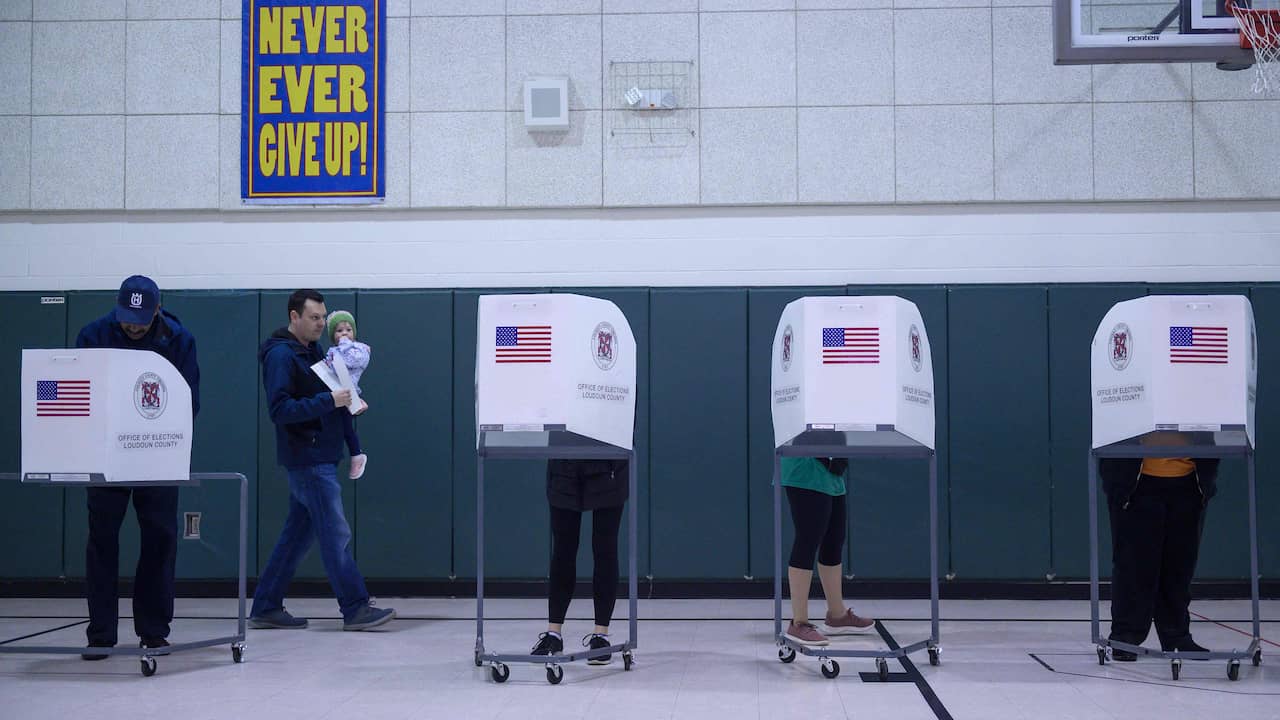In view of the American midterm (mid-term elections), the Republican Party is more than ever in the hands of former President Donald Trump. His allegations of election fraud are an important part of the Republican strategy for taking the mid-term elections. This could have serious consequences for the 2024 presidential election and for American democracy in general.
“So what are we going to do, folks? I just need 11,000 votes.” It’s January 2, 2021, and Trump has been online with Brad Raffensperger for over an hour. He is the secretary of state of Georgia and therefore responsible for the electoral process in that state. Trump asks his party colleague to find “enough votes” (11,780) for the state to go to the incumbent president. Raffensperger refuses. Trump loses the election.
The strategy that seemed like a last ditch in 2020 could still become a determining factor during this year’s midterm. Because in the meantime the seeds of doubt about the elections have germinated in a clever strategy by the Republican Party to win the elections. And it could just be that it will prove successful in the next few years.
Trump’s election fraud allegations have had exactly the desired effect, which is to sow doubts. About now he believes two-thirds of Republican voters that incumbent President Joe Biden came to power unfairly. “And that means they are doing everything they can to prevent this from happening again,” says American expert Victor Vlam.
Trump supporters are therefore an indispensable link in the so-called district strategy (loosely translated: ‘neighborhood strategy’) that Republicans are now using. This strategy means they want to increase their influence across the country at the most local level possible.
“Army” of Republican voters and lawyers
The strategy took shape when former Trump adviser Steve Bannon urged supporters in a podcast to volunteer en masse in polling stations, preferably in Democratic neighborhoods. “We will win the elections, village by village, district by district. And they can’t stop us,” he said. After his call, the number of Republicans aspiring to become election officials skyrocketed.
Vote counters are instructed by Republicans before the midterm on how to sow as much doubt as possible about the validity of votes. For example, by interrogating the identity documents of voters or questioning the functioning of voting machines.
All these reports are collected so that they can later be used as “evidence” of election fraud. In addition to voting volunteers, the party is recruiting lawyers to present this evidence in lawsuits Politic. “It will really be an army,” said the Michigan Republican integrity director.
Republicans in key positions
And that army is made up of more than just polling volunteers and lawyers. Republicans are also trying to advance their people into leadership positions in polling stations. “In most cases, those are elective positions. That means people just show up in the ballot. But sometimes there’s only one candidate, because it’s hard to find people for that anyway. So if a Republican makes a function available, they probably will even get it, ”Vlam explains.
Finally, Republicans are trying to secure key positions within the states. An important function is, for example, that of Secretary of State. That person is generally (the exact function varies from state to state) responsible for organizing the elections. “For example, they can create barriers that make it harder for some people to vote,” says Vlam. He or she can also initiate an investigation into election fraud or even have a recount done.
In many states, Republican election deniers are competing for political office. This is happening, for example, in Arizona, where the party is pushing Trump’s loyal supporters for three key positions (secretary of state, governor and secretary of justice). And if massive reports of election fraud arrive in such a state from polling stations run by Trump supporters, the influence of this group is widespread and relatively broad.
While Trump has been trying to get more votes from above in 2020, Republicans now want to sow doubts about the bottom-up outcome.
“Damage to the electoral system”
By de district strategy will seriously affect the results is the question. “On an individual level it won’t have a huge impact. But because it now affects a lot of different people in many different places, there can really be influence,” explains Vlam. This influence will be particularly significant in states where the differences in results are small.
And so the strategy is worrying, says Vlam. “I think this strategy could cause very serious damage to the electoral system. It could lead to a result that does not correspond to the will of the people. This is obviously a big problem in a democracy,” he says.
“I also think this can damage confidence in democracy. Even if it doesn’t affect the outcome, tactics like this can still make Democrats lose faith in the outcome. And if you don’t trust them anymore, the foundation of your democracy isn’t there. ‘is”.
What can the Democrats do about it? Not much actually. The methods of the Republicans are legal. “The problem is: what’s legal isn’t always ethical,” says Vlam. “You can stay within the bounds of the law and continue doing harmful things.”


